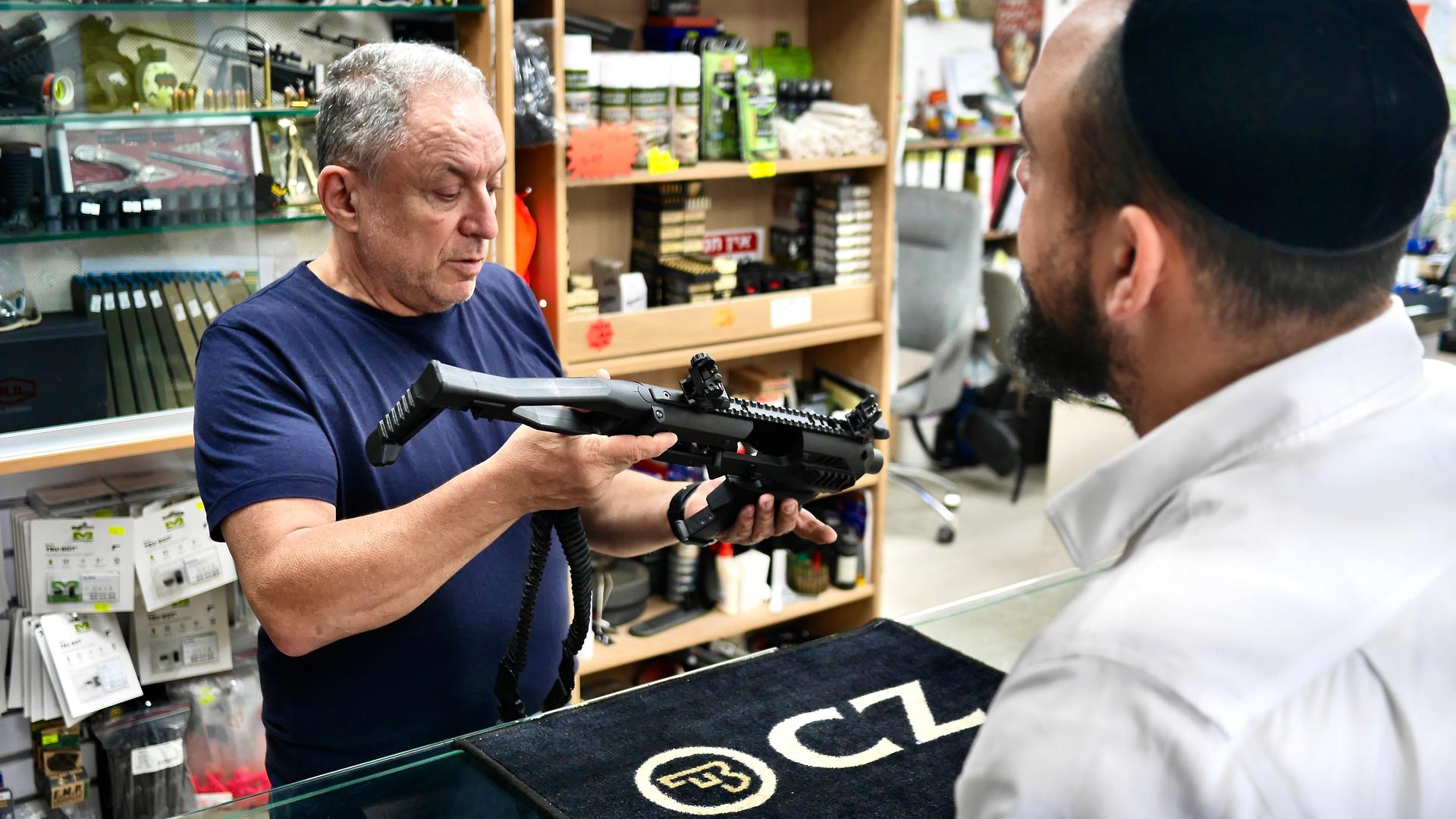At a recent gun safety class just outside of Jerusalem, the classroom was packed. Hodaya Dahan, who was sitting in the back, said she is ready — for the first time in her life — to buy a gun.
“I have two kids and I have to be sure that when I go out with them, I’m safe and no one can harm me,” she said.
Dahan said that everything changed after the shocking attack by Hamas militants in southern Israel on Oct. 7, which left an estimated 1,200 Israelis dead. Since then, many Israelis have rushed to buy weapons for the first time. Gun sales across the country are on the rise.
“[With] the horrible massacre on Oct. 7 [came] the understanding that they can harm children, women, pregnant women, that was the difference. And the understanding that you can’t really rely on anyone to help,” she added.
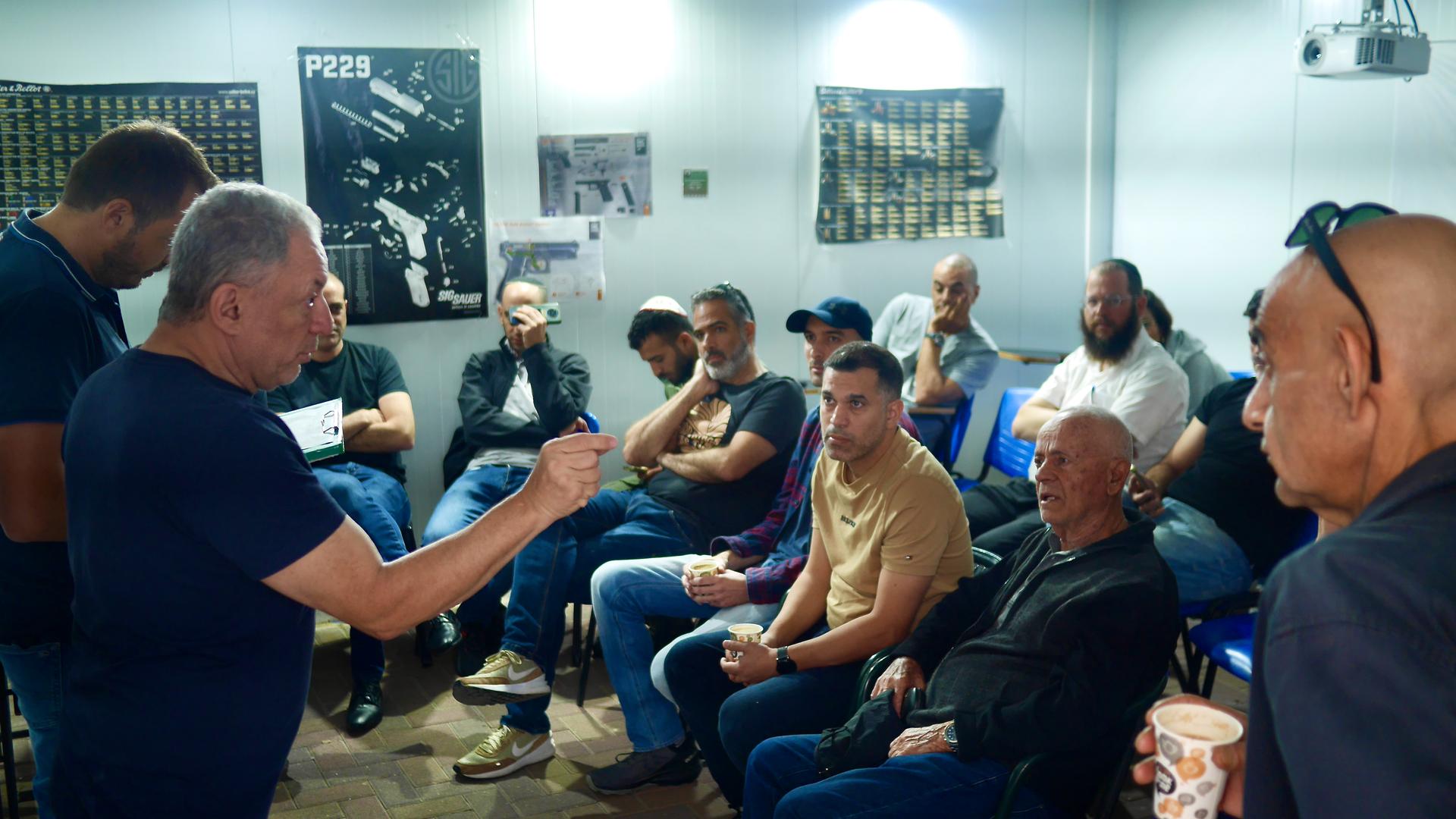
Yair Yifrach is the owner of the gun shop, shooting range and training school where Dahan signed up for the gun safety class. He said he’s been so busy in recent weeks, it’s been impossible to keep up with demand.
His training courses are double- or triple-booked, and he said it seems like everybody wants to buy a gun right now.
“All of them. The right [political] side, the left side, the middle side. All of them,” Yifrach said. “We have rules in Israel,” he added. “Very, very tough rules.”
In Israel, getting a gun requires a license. Unlike in the United States, civilians are almost never allowed to buy a rifle, only handguns. There are limits on how much ammunition people can purchase. And every round is kept track of by licensed sellers.
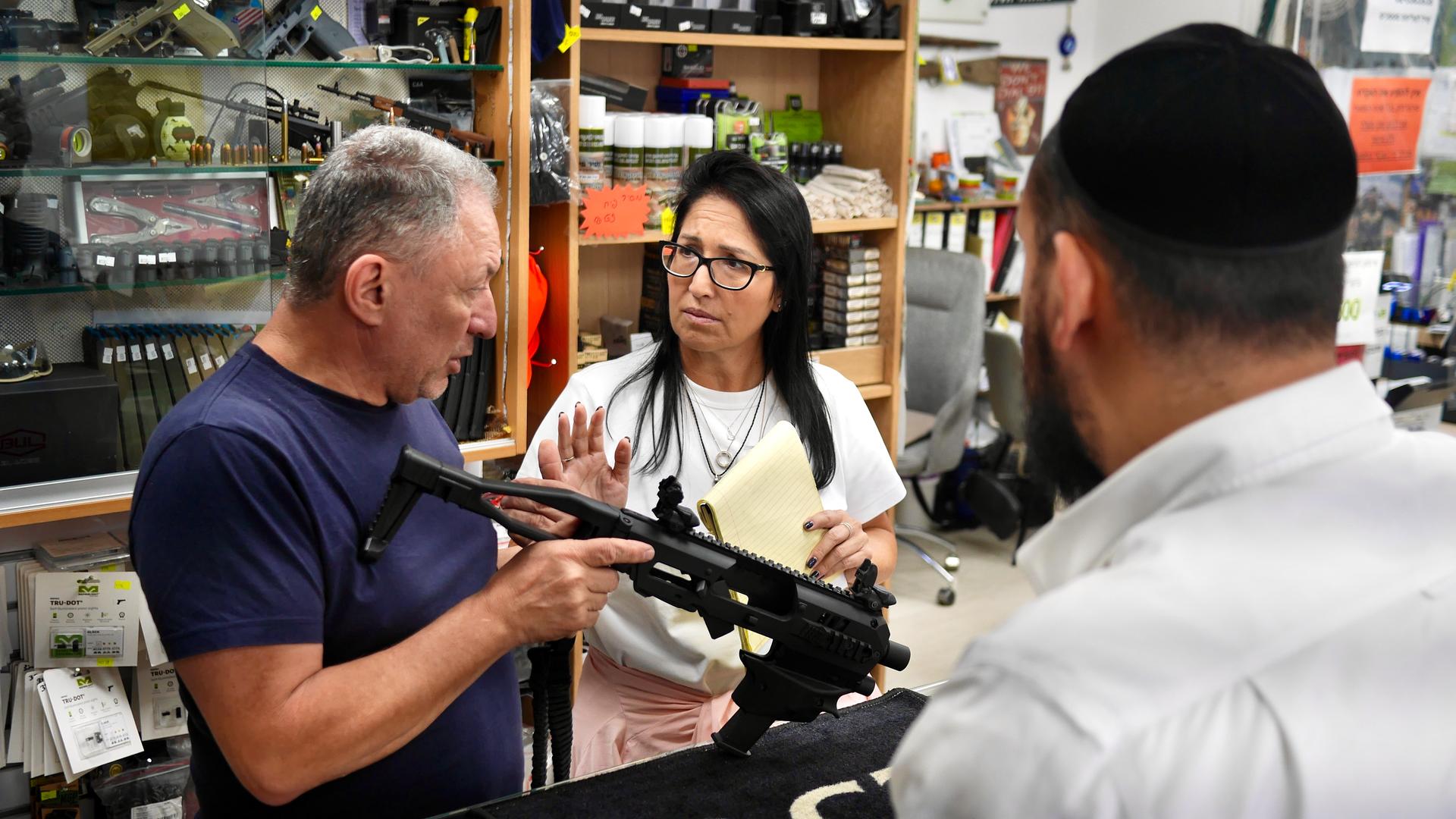
After Oct. 7, the government loosened some of the rules, making it easier for Israeli citizens to buy weapons.
But more guns in the hands of more people can also be dangerous.
A tragic shootout in Jerusalem last week is now getting a lot of attention in the Israeli news media. Last Thursday, two Hamas gunmen got out of a car and started shooting people waiting at a bus stop.
Yuval Castleman saw what was happening, so he grabbed his own gun and returned fire.
The two gunmen killed three people, but they were quickly shot and killed themselves. Castleman realized that he, too, was being shot at — by an Israeli soldier with a rifle who happened to be nearby.
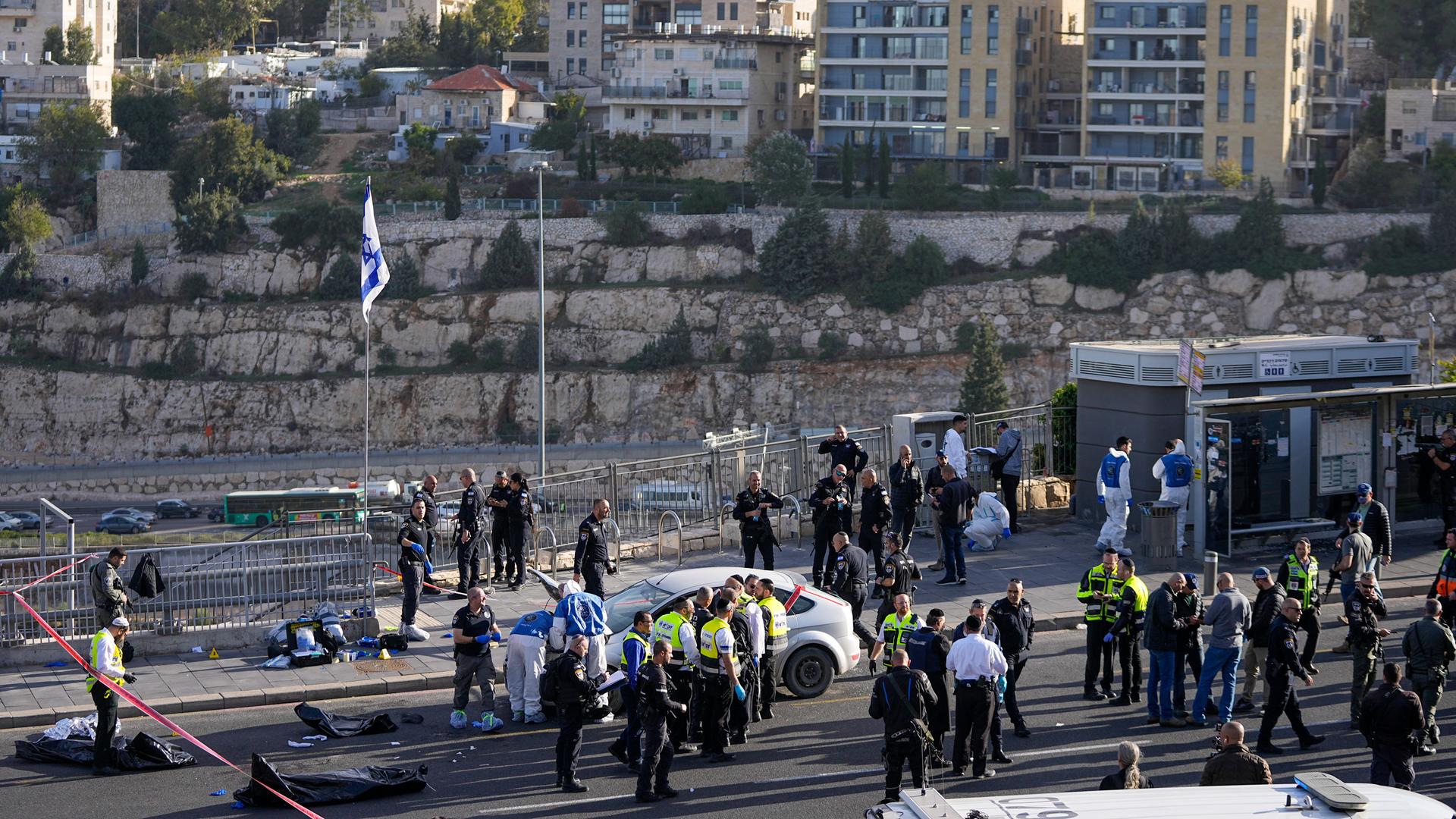
In surveillance camera footage, Castleman is seen tossing his gun aside, getting down on his knees in the middle of the street, opening up his jacket and holding up his hands.
Castleman was shot three times and he died in the hospital that same night. The soldier who shot him is being questioned by authorities.
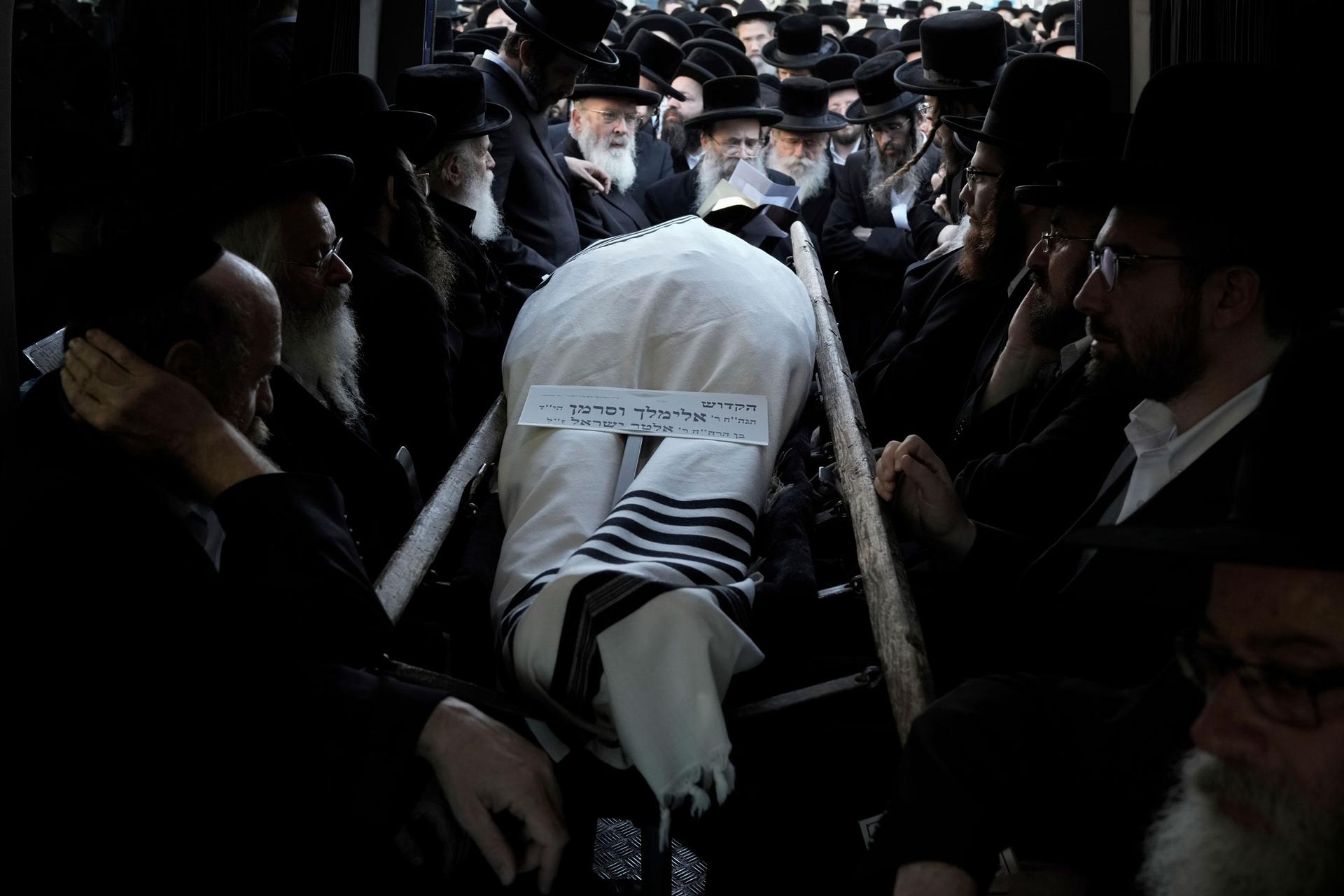
Shaul Judelman only decided recently to acquire a gun for the first time. Judelman has lived in a Jewish settlement in the West Bank for years, where security is a major concern. But he said it was Oct. 7 that changed his mind about owning a gun. And he’s far from alone.
“The core thing is a sense of failure of security,” Judelman said. “What people are feeling is a tremendous sense of fear. The kibbutzim, the communities in the south, that were able to repel the attacks [on Oct. 7] were the ones that had guns.”
There’s also a widespread feeling that the Israeli army, along with the government, let people down, Judelman said.
Itamar Ben-Gvir, Israel’s far-right national security minister, has been a big advocate of putting weapons into the hands of more Jewish Israeli civilians.
And that makes a lot of people uneasy — especially Palestinians. Many are not citizens of Israel, and they are not legally allowed to buy guns. That includes most of the Palestinian population of Jerusalem.
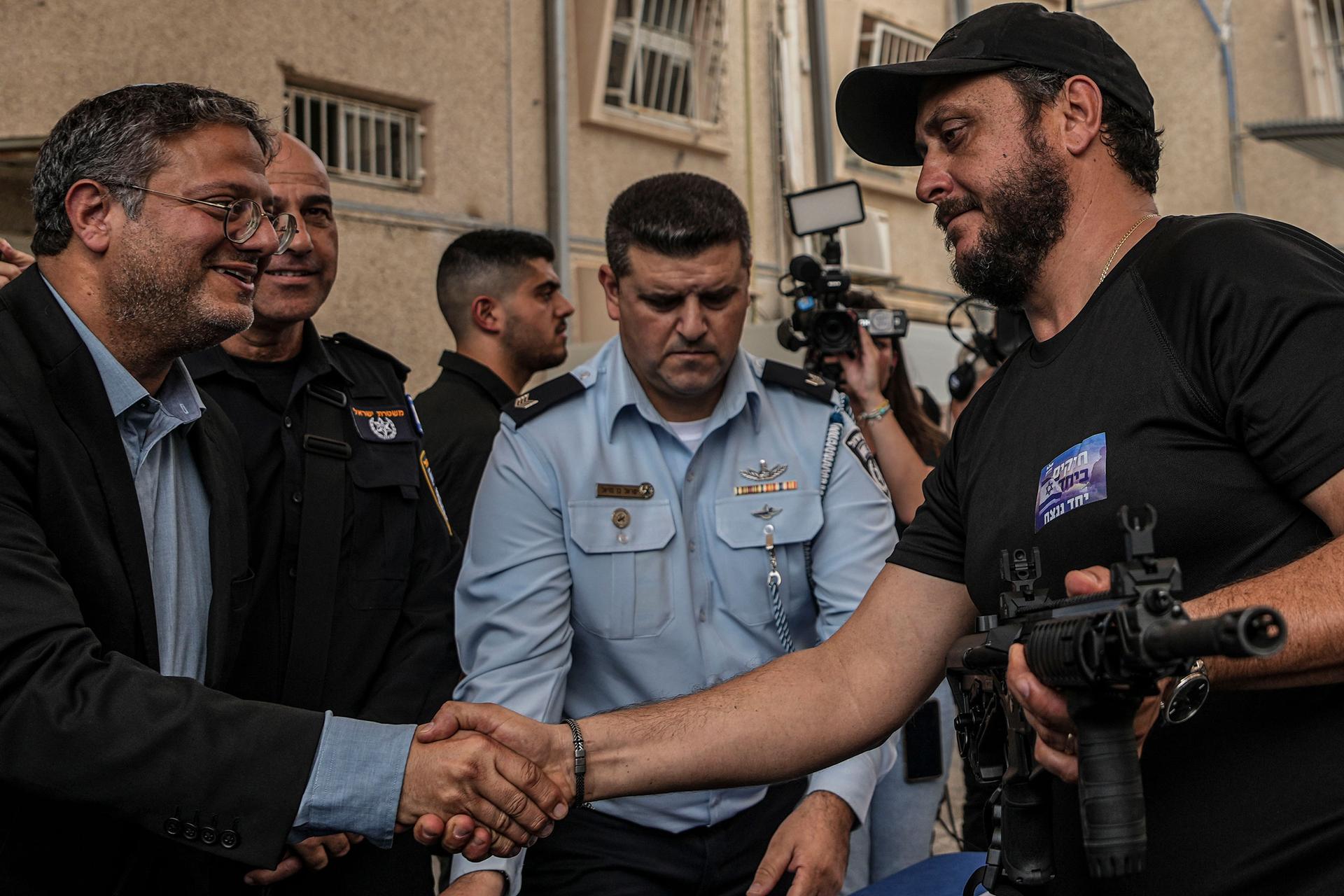
“It’s very scary, actually, for us,” said Ahmad Muna, who works at a bookshop in the commercial heart of Palestinian East Jerusalem.
“Basically, normal civilians are now armed and they don’t hesitate to use their weapons. With the increased amount of weapons all around us, and with the violence that is continuing to increase in our region, we don’t feel safe,” he said.
Muna said he wouldn’t want to get a gun — even if he were allowed to have one. And he worries that Israel’s far-right government is making things worse.
Ben-Gvir and others in the Israeli government are, Musa said, “encouraging violence and helping [Israeli] settlers to use violence against Palestinians.”
It’s not just Palestinians who are alarmed.
On Monday, the head of Israel’s gun licensing department in the national security ministry resigned.
This followed revelations that Itamar Ben-Gvir was fast-tracking thousands of civilian gun permits.
Prime Minister Benjamin Netanyahu was asked recently about the rise in gun licenses, and the shooting death of Yuval Castleman last week. He said more guns for civilians is a good idea, because it saves lives.
“It could be that we will pay a price for it,” Netanyahu said. “That’s life.”
Later, after his comments drew criticism, the prime minister called Castleman “an Israeli hero.”
He also said there would be a full investigation into his death.
Editor’s note: Fuad AbuGosh and Yonit Farago contributed to this report.
Our coverage reaches millions each week, but only a small fraction of listeners contribute to sustain our program. We still need 224 more people to donate $100 or $10/monthly to unlock our $67,000 match. Will you help us get there today?
